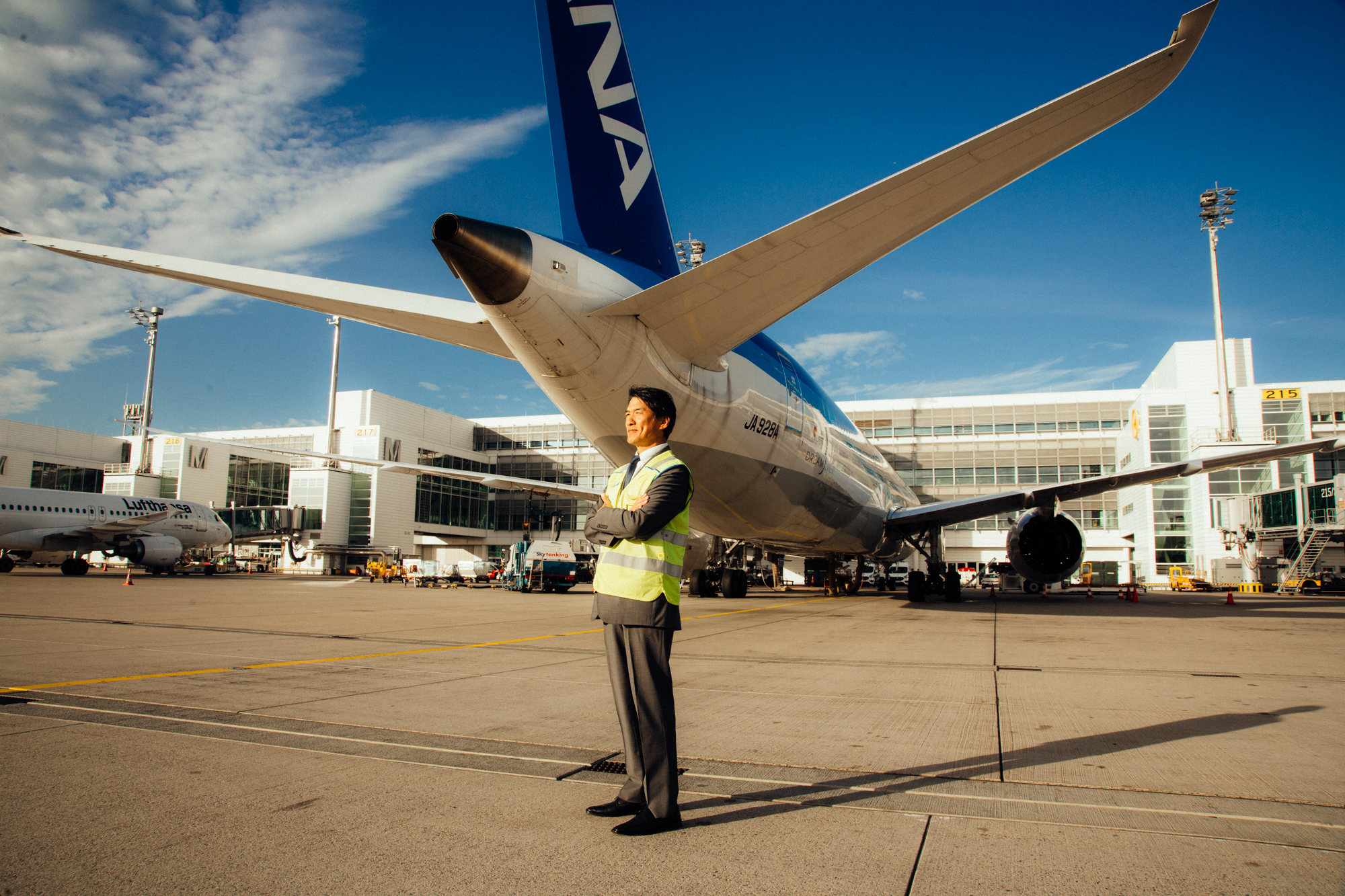When it comes to software and digital, some think Japan is weak compared to its perfection in hardware. Yet the country has an extremely exciting new-generation digital scene that has been making itself more noticeable internationally for some time now. One of the pioneers is the digital design consultancy Goodpatch, which has also been active in Germany since 2014. We met founder Naofumi Tsuchiya and Boris Jitsukata, the former Head of Germany and now responsible for Goodpatch’s international business, at the company’s headquarters in Tokyo. And we learned a lot about the background of this young and digital Japanese global company.
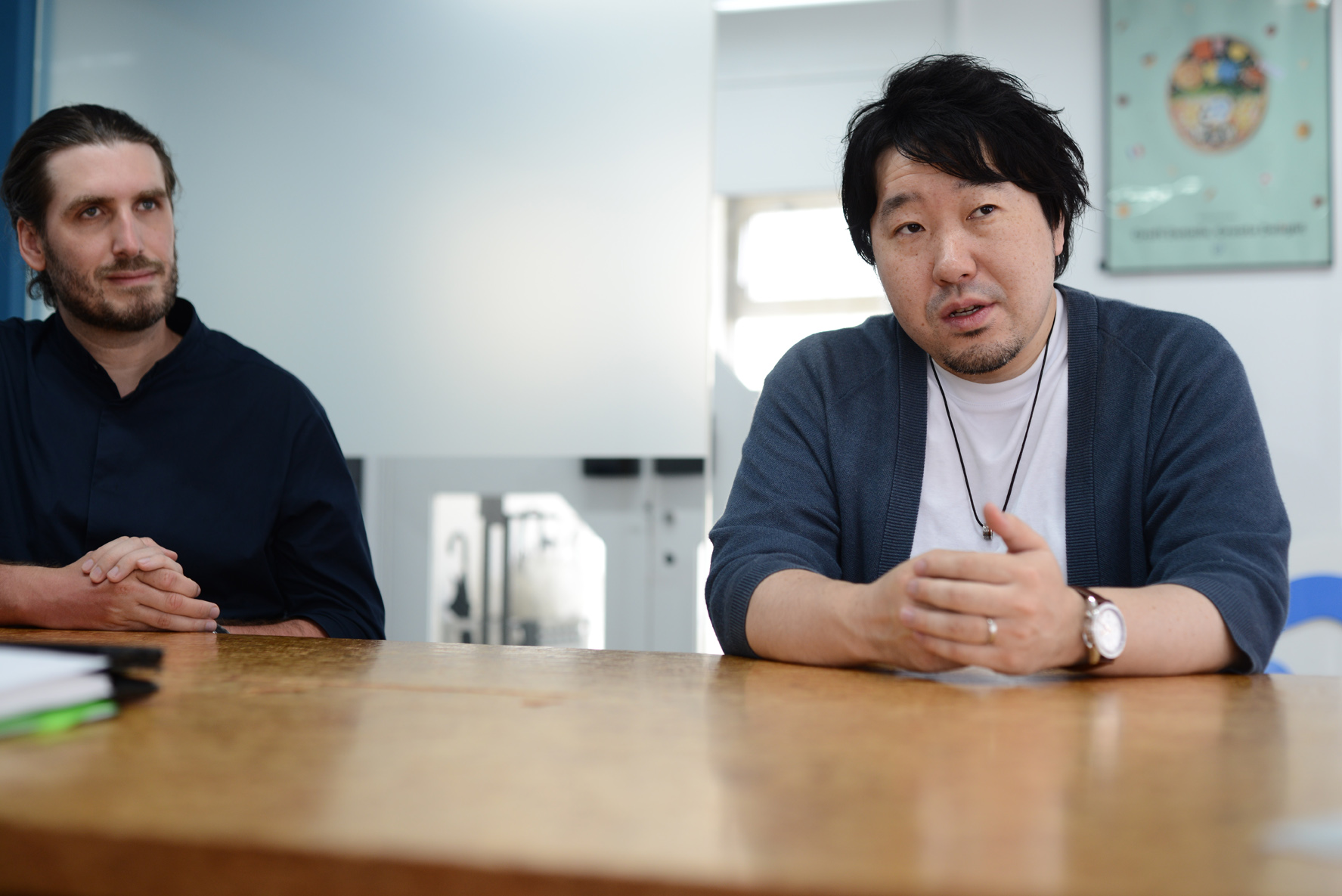
J-BIG: Please tell the story behind Goodpatch – how did the company come about?
Naofumi Tsuchiya: I founded Goodpatch about 11 years ago. I had nothing to do with design myself at first – in my first career I worked in sales. Then I switched to web design and worked for many dozens of Japanese companies on their websites. But my real dream was to have started my own business by the age of 30. Then a bit of a coincidence happened because I made an inherited money when I was 27 – my grandmother left me about 5 million yen. It was clear to me that this would become the foundation for my company.
I heard a talk by Tomoko Namba, the founder of the Japanese digital company DeNA, around this time. She emphasized that Japanese companies needed to internationalize, that they also needed to become multinational. A strong impulse for me – which drove me to Silicon Valley in March 2011, on March 10, the day before the great earthquake and tsunami disaster in Japan. I probably wouldn’t have done that trip anymore just a day later. In Silicon Valley, I made a lot of contacts, explored startups like Airbnb or Instagram – and what their user interfaces and user experiences did for global success. When I flew back to Japan, it was clear to me that this was going to be my topic.
J-BIG: Why did you name the company Goodpatch?
Naofumi Tsuchiya: When I was in San Francisco, I got to know a co-working space called Dogpatch Labs. This is where Instagram was founded. It inspired me a lot at the time, because co-working spaces like that didn’t exist in Japan back then – but in Silicon Valley they were spreading like wildfire. I experienced there how many different people worked on start-up ideas in a special atmosphere, ate together, or sometimes just hung out with each other. That was a kind of atmosphere I really liked. This culture seemed to me to be another factor in the success of these companies. And so a twisted katakana version of Dogpatch became Goodpatch. As patch means “to connect” or “to join”, I hope Goodpatch represents the role of connecting two different things, people and technology, or Japan and the world.
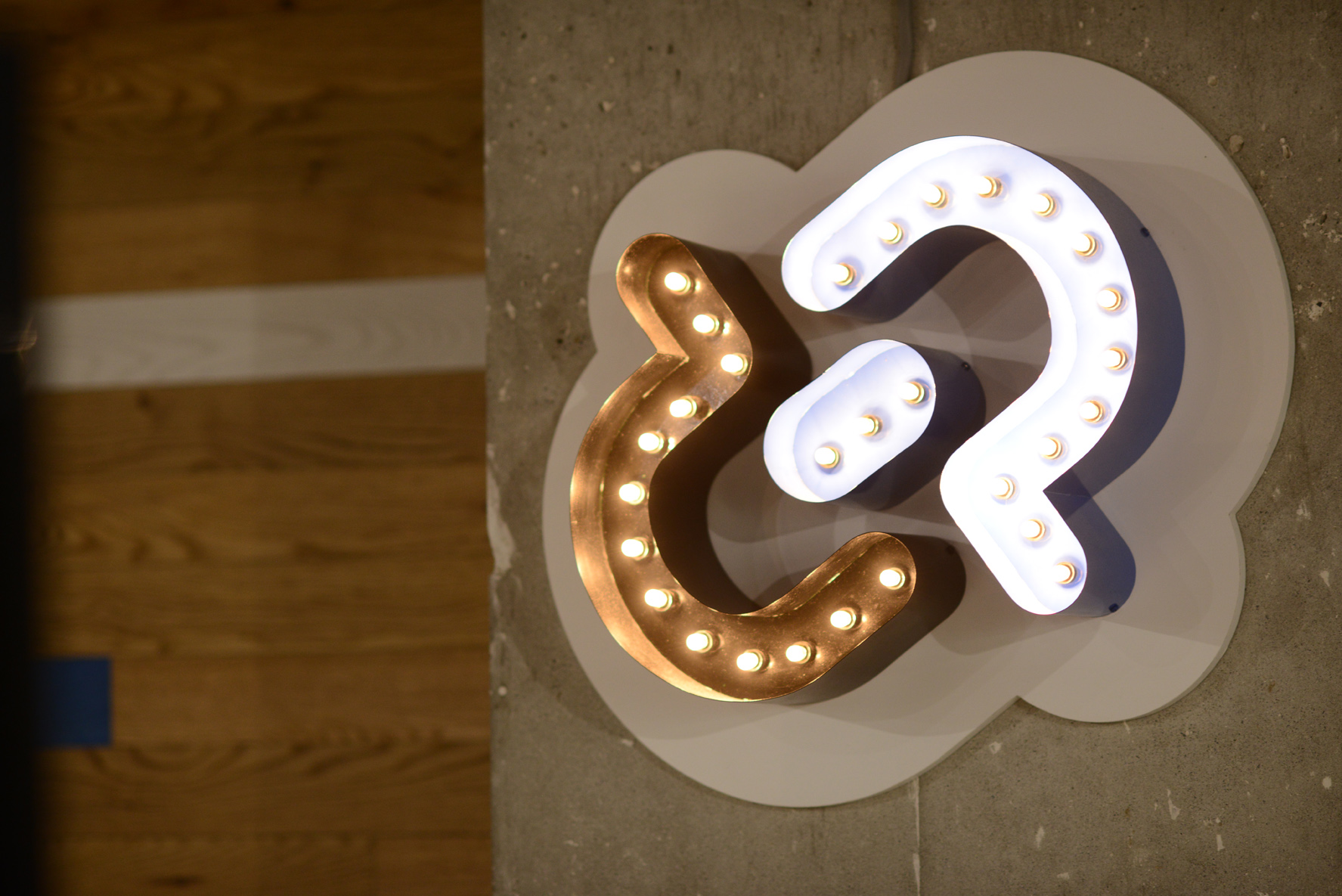
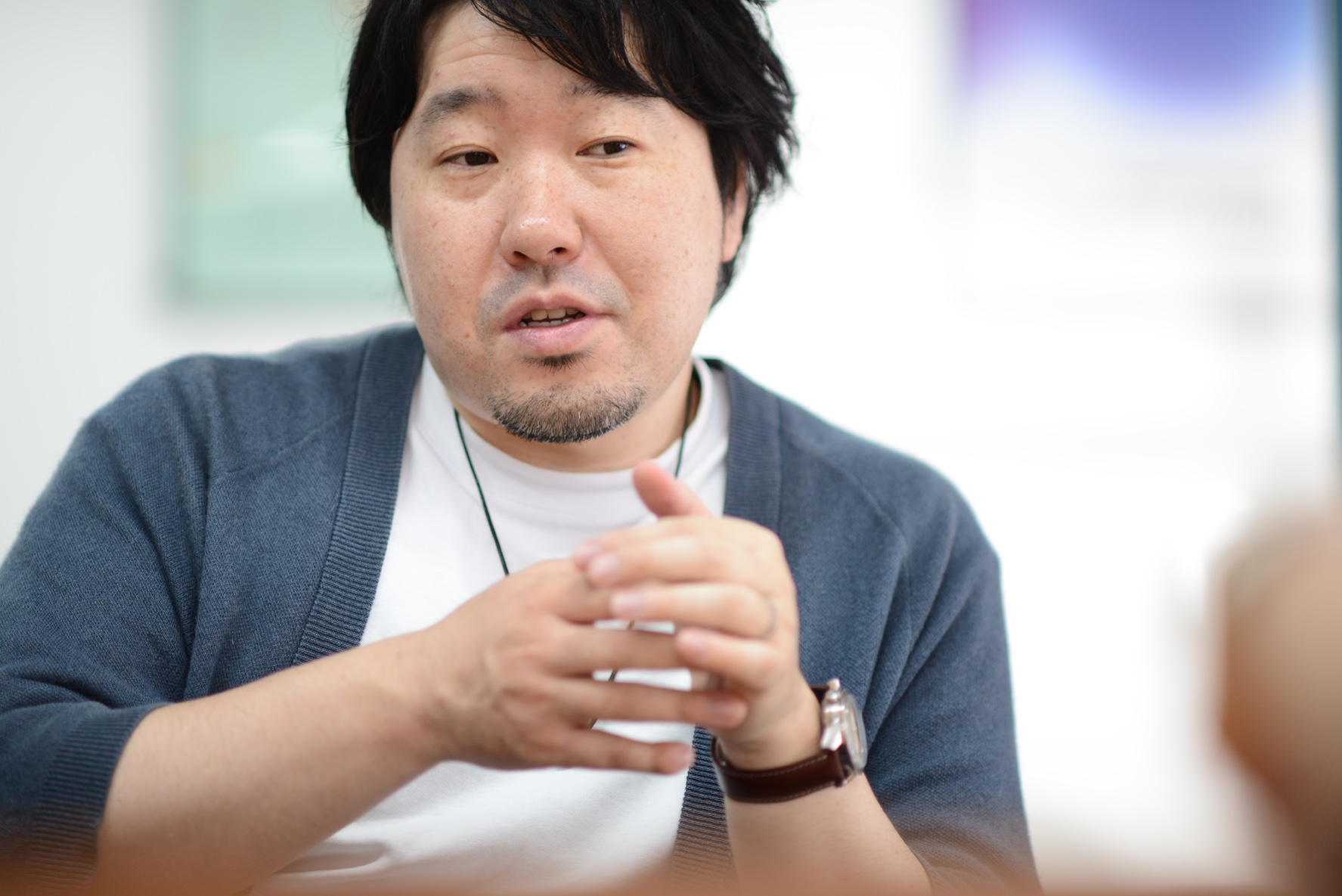
J-BIG: How did the company develop at first?
Naofumi Tsuchiya: Our business concept is that we support digital UI/UX development for startups and larger companies from the beginning of the strategy phase. So we are not pure implementers. The first turning point after the foundation was with a start-up project of a student start-up of Tokyo University – Gunosy. We supported the project for free – the result hit home and also got a lot of media coverage in Japan. Goodpatch was often mentioned in this context – and so we got first inquiries also from bigger companies. Another important project was an app for the FinTech company “Money Forward” – another success in Japan. Great digital UI/UX in Japan meant working with Goodpatch by then. After only five years, we had grown to 100 employees.
J-BIG: What happened then?
Naofumi Tsuchiya: Then there was a serious crisis. We had doubled from 50 to 100 people within a year. But with the strong growth came the problems. With all this financial and workload growth, the management couldn’t keep up with the structures. Employees were dissatisfied, they complained, they quit. This went on for two years. Every month, two to three people left us. The fluctuation was about 40 percent. We were always able to replenish that, but it was clear to us: we had to reorganize again. And implement our core values throughout the organization. That actually worked out. And we were able to stabilize from 2019. This crisis was incredibly important for me personally, and I documented this phase in detail in a public blog in Japanese. This content generated over 150,000 readers – including founders of startups who had come into similar situations. This brought us many new contacts and also projects in this environment. After stabilization, a new high point came in 2020: in the middle of the Corona crisis, we went public in Tokyo.
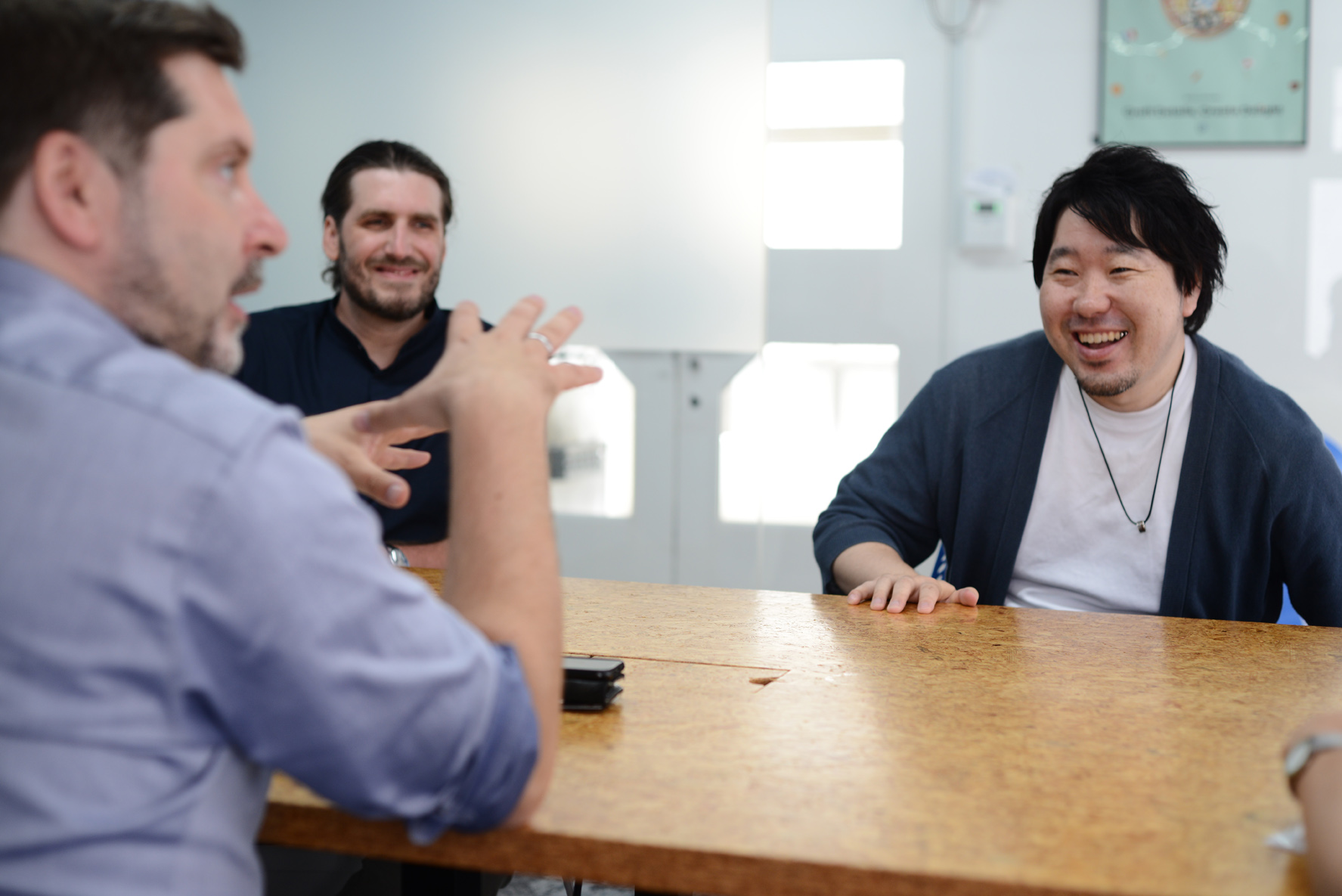
J-BIG: Shortly before the turmoil started, the first international studio was opened. In Berlin, of all places, in Germany. Why is that?
Naofumi Tsuchiya: When I started Goodpatch, there were two iPhone apps that I really liked and used. One was Wunderlist, and the other was SoundCloud. When I looked into both of them a bit more, I realized that both startups behind these apps were based in Berlin. Then there was a coincidence: my later co-worker Boris applied to work for me. He was the first German I met – and he didn’t actually know Japanese, which is why we conducted the job interview with an interpreter. He was studying for his master’s degree at Keio University at the time and then first had a part-time job with us. Then he went to St.Gallen for his MBA. Finally, he decided to join us full time afterwards, although he also had offers from big companies in Switzerland. Together we planned the internationalization, we talked about San Francisco – but finally we decided to try Germany.
Boris Jitsukata: I first suggested Munich, because the city is an important German business hub. Naofumi suggested Berlin, but from my point of view there were really “only” start-ups there.
Naofumi Tsuchiya: Yes, Berlin was a bit seedy. But also “poor but sexy”. We had grown with startups in Japan, why not try the same in Germany? And then Boris was also convinced that it should be Berlin.
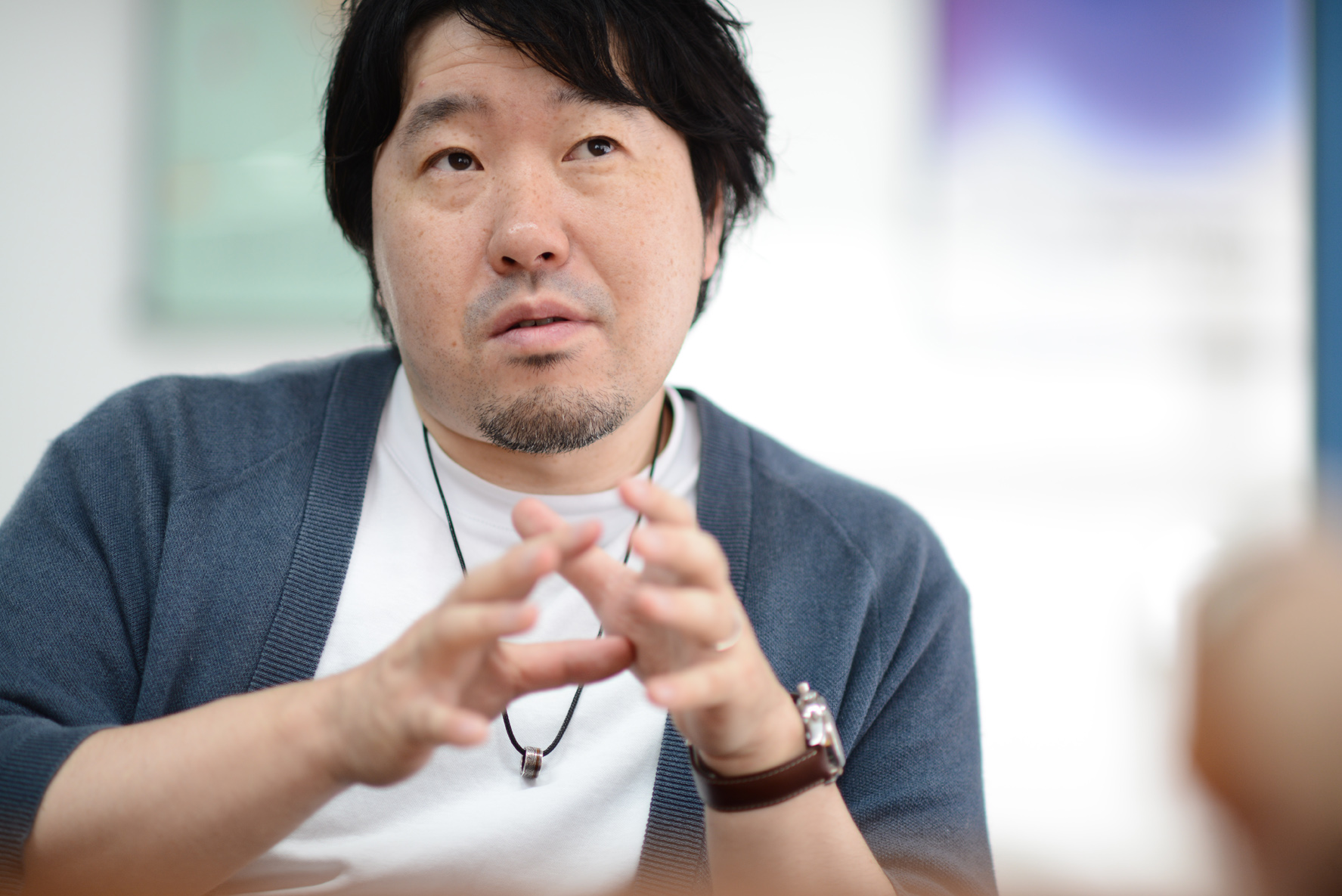
J-BIG: You then went back to Germany from Japan. How did that work out?
Boris Jitsukata: I packed my suitcase and I had to build it all from scratch. The day I flew back, the first ever English-language website of Goodpatch went live. Just in time to support my first steps in Germany in terms of content. I then found accommodation with a start-up founder who was also associated with the Atlantic Labs Venture Network. That was also a great initial contact – because we were able to build an early local portfolio from the ecosystem of these startups. Gunosy or Money Forward – those were household names in Japan, but of course nobody in Germany knew these companies. And so they were actually worthless as references.
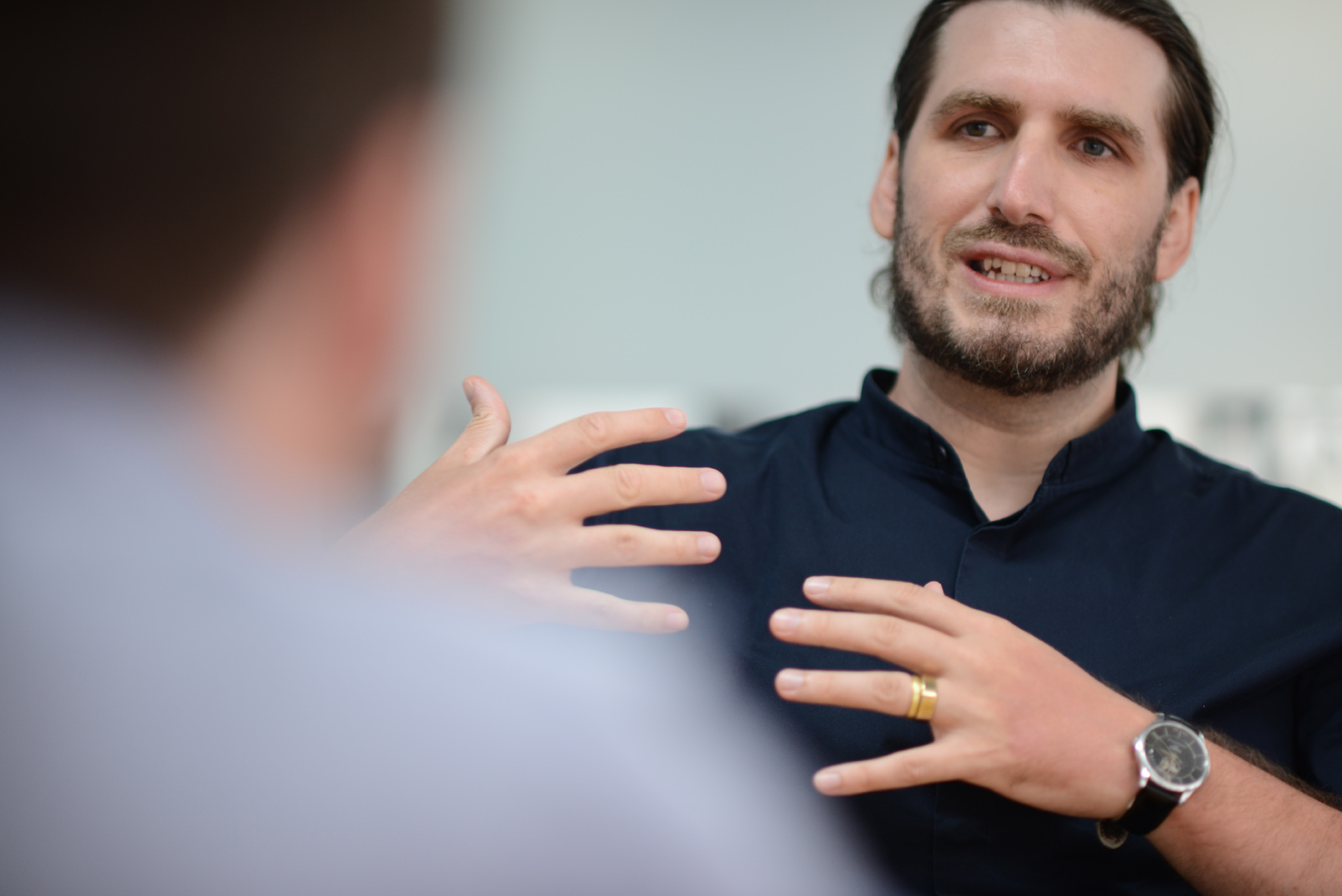
J-BIG: How was Goodpatch able to position itself – probably no one in Germany was waiting for a Japanese design studio?
Boris Jitsukata: I didn’t emphasize that we are from Japan at first. I relied on our portfolio for startups. And I basically used the company in Japan as a blueprint. I knew exactly how to set up an office or what methods to use. You can’t underestimate that – these are things that seem like little aspects, but it makes a huge difference if you’re starting a company from scratch or if you can fall back on an existing model. From the office chairs to the workshop method. So it was also about a transfer approach.
J-BIG: How did the company then develop in Germany?
Boris Jitsukata: It was difficult at the beginning. Because when I came to Germany, Goodpatch in Japan had just entered a major crisis – with subsequent rebuilding. I thought I would be in Germany and Japan would continue to grow enormously – and then I would get a lot of support from Tokyo. But no – there were other problems in Japan and I was left to my own devices for the time being. And then Naofumi came to Germany, in a difficult time for Tokyo, and was thrilled. Because I built up a small business here, but of course it was going well at the beginning. We were before the growing pains phase. And this all felt like a naiv and fun start-up again, of course. So we turned Goodpatch in Berlin into a kind of experimental laboratory for our global corporate culture. Also for forms of management, for self-organization, for performance evaluation – and what worked, we then brought back to Tokyo.
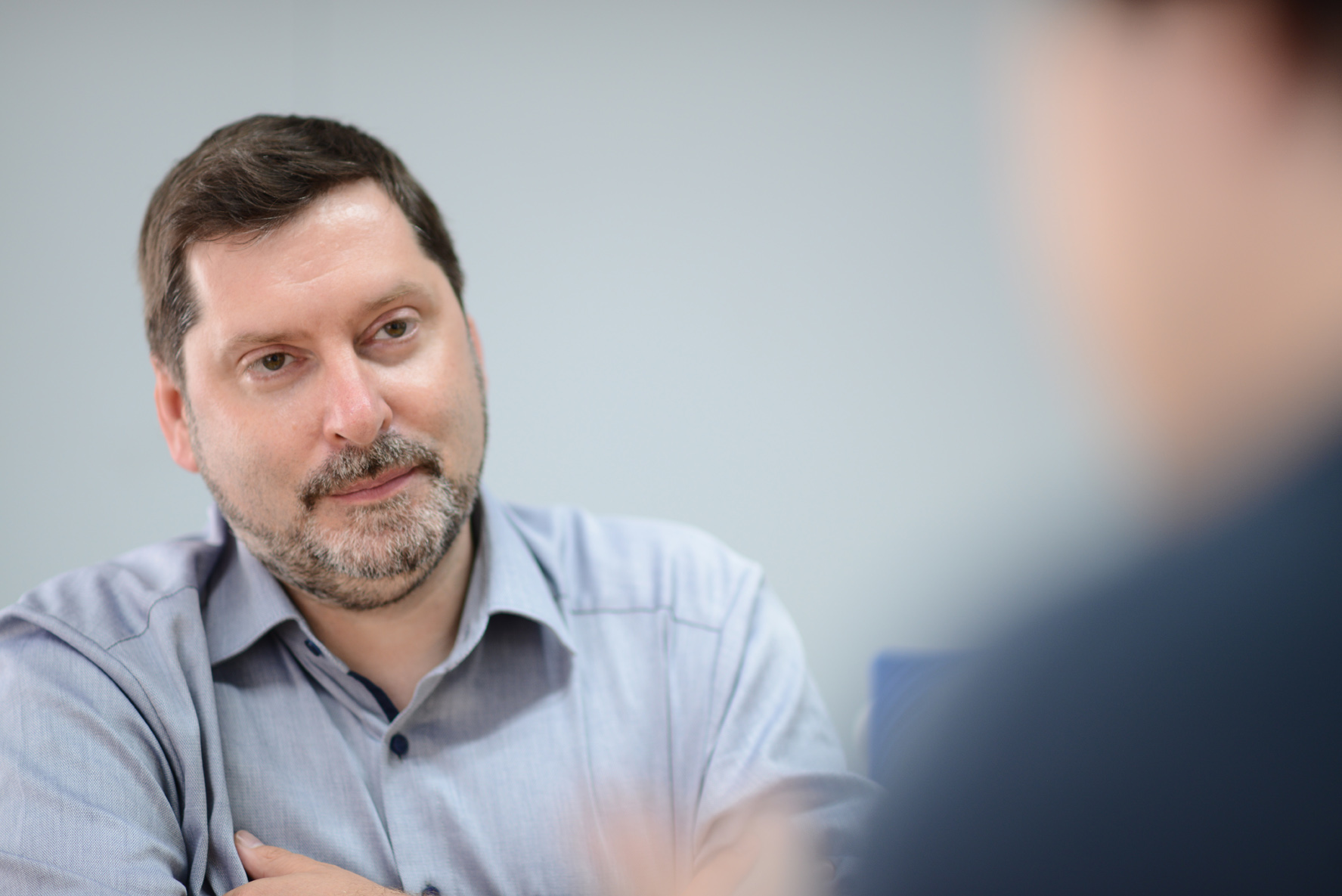
J-BIG: What happened next with the Berlin team?
Boris Jitsukata: On the one hand, we worked with Berlin startups, but on the other hand we were also able to acquire large Japanese companies via Tokyo, for example from the automotive sector. We were then able to inspire them with our Berlin studio and the German characteristic of “gasoline as blood” – in other words, German automotive expertise. Then there we also started a studio in Paris for Renault-Nissan, which then had to be closed again during the Corona crisis. The automotive companies reacted very quickly to this crisis.
Free Subscription
“J-BIG – Japan Business in Germany” is the e-mail magazine dedicated to Japanese companies and their business activities in the German market.
J-BIG: But you will always be a Japanese company with overseas operations. What have you learned in recent years: where can a Japanese headquarter profitably cooperate with its foreign branches, in your case with the German branch? How can you profit from the different locations?
Boris Jitsukata: Goodpatch Tokyo is something like the big sister of Goodpatch Berlin. Siblings are always family, but they also want to differentiate themselves, they don’t want to have all the same friends and listen to the same music, but they always help each other and they also have a lot of similar characteristics and influences. I think that sums it up pretty well: we stick together, but we shouldn’t dictate too much to each other. In the end, you should be allowed to act locally in local markets. For that, this “blueprint” should not be underestimated. If you had to put it in a formula, find the ultimate formula for success for bringing Japanese and German ways of working together, I think: Japanese are strong at “beauty in process.” With the Germans, “output” is important. But it takes both. And I think that when Japanese work in or with Germany, these elements should come together.
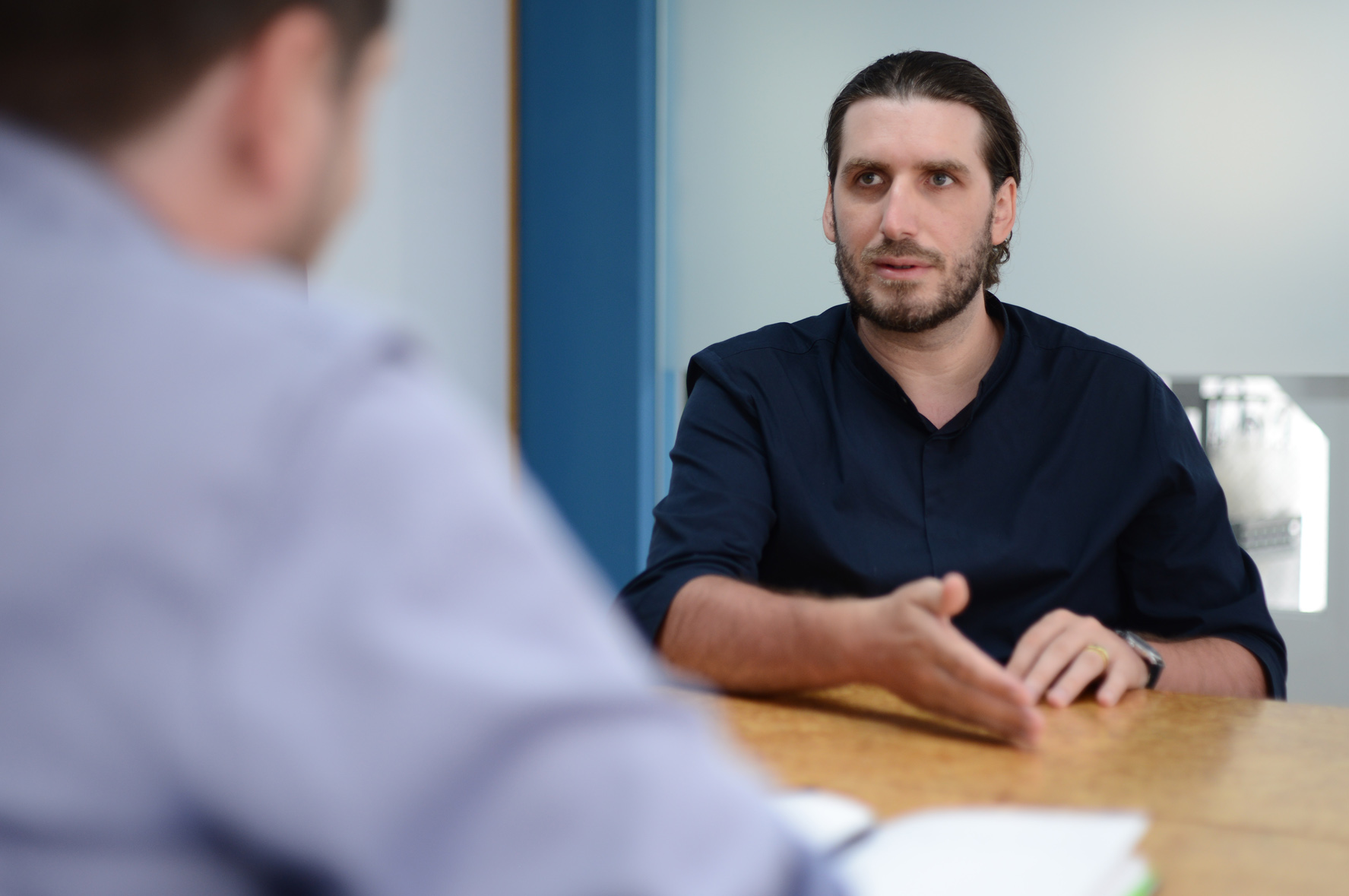
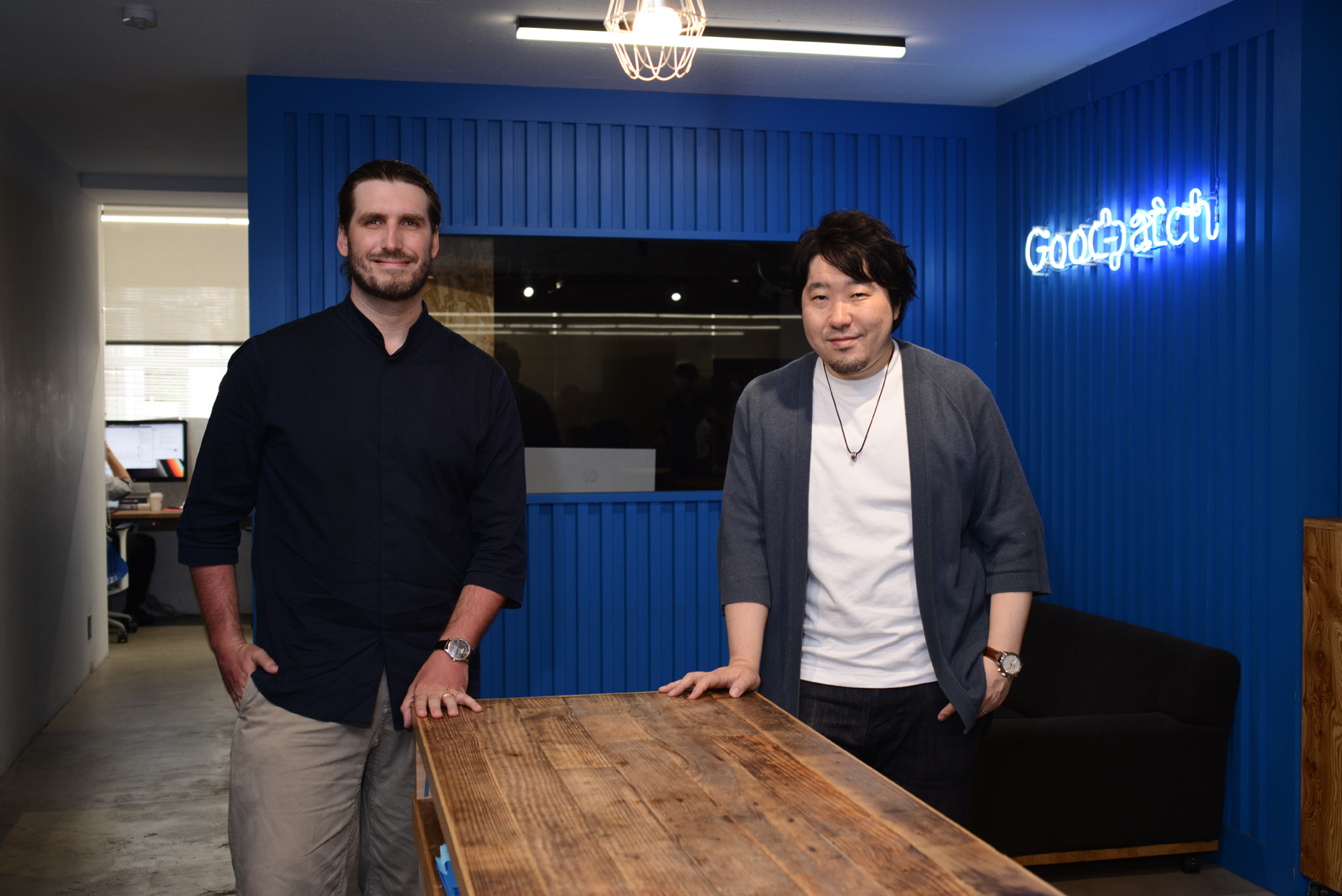
J-BIG: You’ve been back in Japan since the beginning of 2022. What do you bring back with you?
Boris Jitsukata: I got to know a headquarter at the beginning of a company, I built up the foreign business over several years. I have returned again. With these perspectives, I want to help Japanese companies to think internationally right from the start. Especially in the digital sector. Because: the internet knows no borders. I don’t really understand why you have to work the Japanese market first and then wait and wait and wait for the international market. Japanese companies have so much to offer. You should simply see your business, especially in the digital world, as being more borderless.



